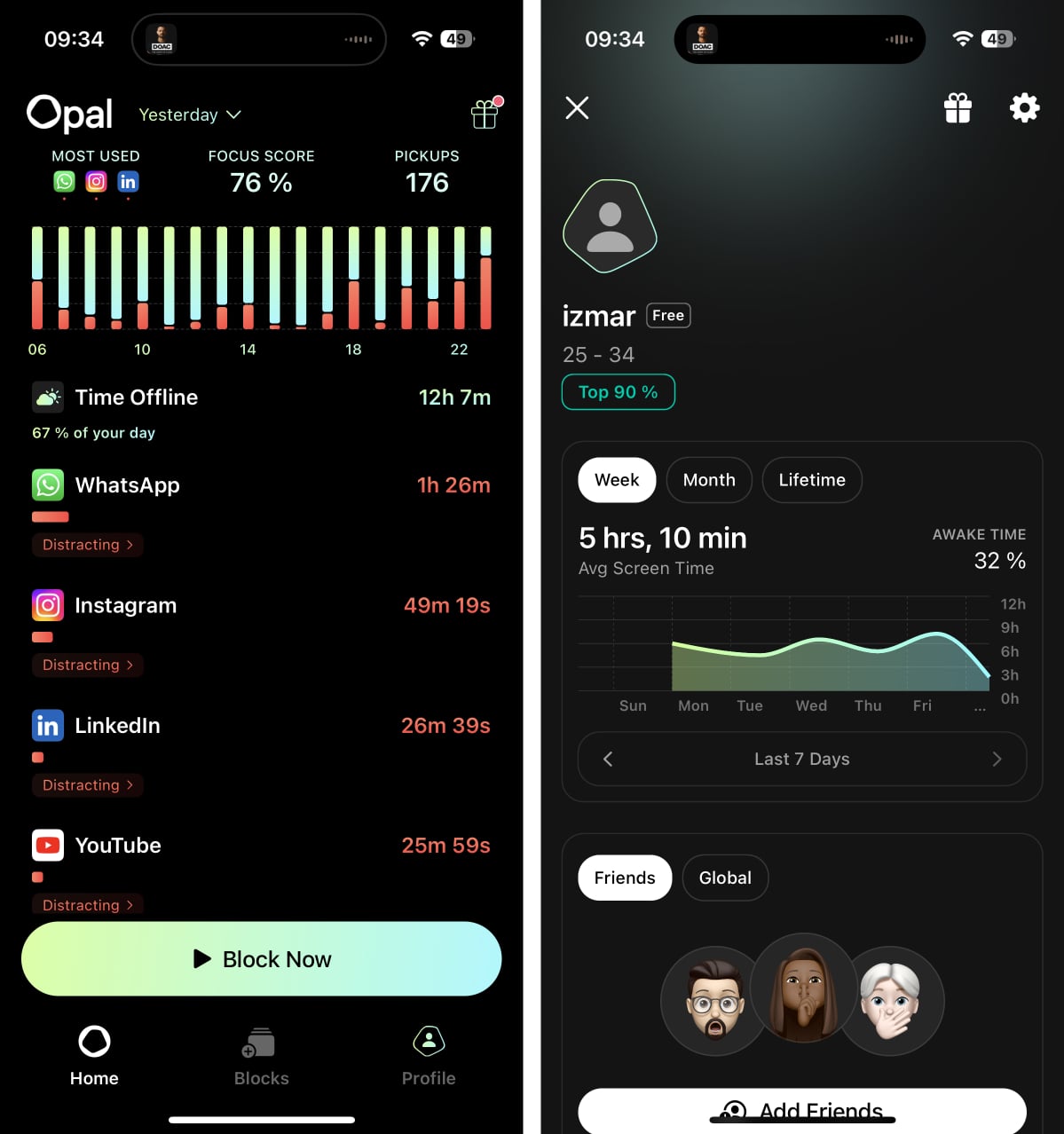- The System Club
- Posts
- 5 hacks to be more accountable
5 hacks to be more accountable
We should all try them next week.
Hey, I'm Ramzi

I can't remember the last time I wrote a newsletter, I said I'd write weekly, yet here we are.
I preach balance, productivity and routine, but don't always follow my advice.
We've all been there, right? Today I'm getting real about why it's so hard to hold ourselves accountable - and how to fix it.
Here's why I think we struggle with accountability:
→ Poor sleep
→ Lack of routine
→ Too many distractions
I'm focusing on improving these areas:
Sleeping better
Sleep impacts everything.
My dad had one of the shittiest sleep habits I've witnessed. I can remember waking up at night to get some water. I'd pass by the living room at 2 am, only to see him watching TV. Then he complained of having insomnia.
This might be why I've become obsessed with the topic. Sleep has an impact mood, energy levels, confidence, and willpower. And I didn't even mention health:
Good sleep supports brain performance and mood, decreases the risk for diseases like type 2 diabetes, heart disease, stroke, obesity, and dementia, and is crucial for overall health and well-being.
If you don't believe me, there's this research, this one and that one.
To me, it's the most important health habit.
How to build better sleep habits?
I heard an interesting tactic I heard on a podcast.
If you have sleep anxiety, force yourself to sleep at 11:30PM and wake at 5AM no matter what. You'll be tired the next day, but do it again. Within a week, your body will start to crave that routine.
Once you've built the habit for a week, gradually increase sleep duration by 15-20 mins per day. Go from sleep anxiety to sleep craving.
Timeboxing my days
I easily get overwhelmed trying to cram in more tasks. The irony? I get less done. I actually talked about this extensively in this edition.
Context switching drains energy, not deep work. Studies show the brain needs ~25 mins to switch contexts (UC Irvine research). Scheduling focused time is essential.
I started using timeboxing to work more efficiently.
Tuesday morning: Client A
Wednesday : Client B
Thursday: Client C
Next, here are 3 tips for meetings:
Group meetings Monday/Tuesday afternoons. Energy levels tend to go down in the afternoon and that's the perfect time to do something less productive.
Leave only 5-10 mins between meetings.
Shorten meetings to 20-45 mins. Don't leave big gaps.
Here's what my week looks like (ideally...)

Now, if you work in a company, you could replace client by topic/project. The point is: Try to stick to it and communicate as much as possible to people that this is important to you and will actually help you deliver to them faster.
Building a simple morning routine
I'll call this routine the StillMove™ morning (Yes, I just trademarked that)
"Still" - 30 min: No phone, journaling, meditate...
"Move" - 30 min: Gym, exercise, yoga. Whatever floats your boat.
The morning is a sacred time. Your brain is less stimulated, you can give that time to you and only you. I have been waking up early to hit the gym at 7am and love how it makes me feel.
Building this habit will make you carve these paths to a healthier morning habit. It might sound insane to you now, but it will become easy, trust the process. I actually talk about that here:
What's one morning habit you can start cultivating?
Cut Down on Digital Overload
My biggest struggle - doomscrolling, YouTube, Instagram, etc. The endless scroll is dopamine overload.
I started using an app called Opal to track my usage. It can block apps and force me to be more intentional with screen time. Still a work in progress, but being conscious of the most used apps and screen time makes me want to go in the top 1% of users.

(I need to seriously get out to these brands and get sponsored)
Decreasing my ambitions
This may sound odd. You might say, "You tell us to be super disciplined and stay off our phones. But don't be ambitious. That's dumb."
But I see 2 kinds of ambition:
Realistic ambition: You're satisfied because you did what you said.
Oneiric ambition: What you wish to achieve but fall short.
Being a realistic ambitious doesn't mean doing less. It means finding the most you can achieve. This sets you apart from people who don't act. Commit to the most you can do, then do it.
A real example for me is making this newsletter ambitiously achievable. Get back to weekly issues, but:
Write max 2 hours.
Outsource publishing.
Don't overthink it. Write what matters now.
Get my GTD template
Now that good habits are set up, let's get things done 💪.
If getting things done is also important to you, here's a ClickUp template I did to capture, plan and crush my tasks. I've only gotten great feedback and there's a 30-day money-back if you're unhappy.
Even ended Product of the day on ProductHunt.

Ok and if that's not enough, here's a 50% OFF coupon that works until Tuesday the 5th: OFF50RVW
Let me know if you have any other tips. Accountability is hard, but trying to get 1% better every day. More to come next week (hopefully 😅)!



Reply